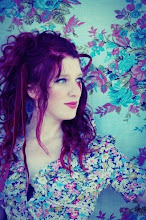Les Deux Magots, where Anna Karina was discovered.
Karina was 17 when she arrived in Paris—indigent and unable to speak French. Living off the streets she got a break while sitting at the cafe
Les Deux Magots. She was approached by a woman from an advertisement agency who asked her to do some photos. She became a successful fashion model, meeting
Pierre Cardin and
Coco Chanel.Chanel helped her devise her
professional name, Anna Karina.
Karina's first film appearance, although uncredited, dates from 1959, when a soap advertisement in which she appeared as a model was included near the end of
Guy Debord's
On the Passage of a Few Persons Through a Rather Brief Unity of Time. The image was accompanied by Debord's voice-over: "The advertisements during intermissions are the truest reflection of an intermission from life."
Jean-Luc Godard, then a film critic for
Cahiers du cinéma, first saw Karina in a series of
Palmolive ads in a bathtub covered in soapsuds. He was casting his debut feature film,
Breathless. He offered her a small part in the film, but she refused when he mentioned that there would be a nude scene. When Godard queried her refusal, referring to the supposed nudity in the Palmolive ads, she is said to have replied "Are you mad? I was wearing a bathing suit in those ads — the soapsuds went up to my neck. It was in your mind that I was undressed."
In the end, the character Godard reserved for Karina did not appear in the film. The next year, however, Godard offered her a role in
Le Petit Soldat (1960). Karina, who was still under 21, had to persuade her estranged mother to sign the contract for her.
Karina won the
Best Actress Award at the
Berlin Film Festival in 1961 for her interpretation of the character Angela in the film
A Woman Is a Woman. Her acting career was not, however, limited to Godard's films, and she went on to a successful collaboration with other well-known directors. Her role in
The Nun (1966) directed by
Jacques Rivette is considered by some as her best performance. She also acted in
Luchino Visconti's
The Stranger.
Other notable films include:
George Cukor's Justine (1969),
Tony Richardson's Laughter in the Dark (1969),
Christian de Chalonge's L'Alliance (1970),
Andre Delvaux's Rendezvous a Bray (1971), The Salzburg Connection (1972),
Franco Brusati's Bread and Chocolate (1973) and
Rainer Werner Fassbinder's Chinese Roulette (1976). In 1972 she set up a production company named Raska for her film-directing debut Vivre Ensemble, in which she also acted and which was released in 1973. She wrote and acted in
Last Song in 1987. She has since appeared in
Haut, Bas, Fragile (1995) by
Jacques Rivette and sang in
The Truth About Charlie.
Karina has also appeared on stage, in Rivette's adaptation of La Religieuse, Pour Lucrece, Toi et Tes Nuages,
Françoise Sagan's Il Fait Beau Jour et Nuit and
Ingmar Bergman's Apres La Répétition.
Karina has also maintained an important singing career. At the end of the 1960s, she scored a major hit with "
Sous le soleil exactement" and "
Roller Girl" by
Serge Gainsbourg. Both songs are taken from the TV musical comedy Anna (1967), by the film director
Pierre Koralnik, in which she sings seven songs alongside Gainsbourg and
Jean-Claude Brialy. She subsequently recorded an album,
Une histoire d'amour, with
Philippe Katerine, which was followed up by a concert tour. Karina has also made several appearances on television. In 2005 she released Chansons de films, a collection of songs sung in movies.
Karina wrote, directed and starred in Victoria, a musical road movie filmed in
Montreal,
Quebec and
Saguenay-Lac-St-Jean in 2007. A review by Richard Kuipers in Variety praised it as "a pleasant gambol through the backwoods of Quebec...Given plenty of room to work off each other, the members of this fine ensemble keep pic on track...Big plus is the music and heartfelt songs by Philippe Katerine".[
citation needed]
Karina has written four novels: Vivre ensemble (1973); Golden City (1983); On n'achète pas le soleil (1988); and Jusqu'au bout du hasard (1998).
[12][
edit] Personal life.
Karina and Godard married on 3 March 1961, during the shooting of
A Woman Is a Woman, and divorced in 1965. After Godard, she was married to scriptwriter-actor
Pierre Fabre (1968–1973), actor-director
Daniel Duval (1978–1981) and director
Dennis Berry (1982–1994).
























































